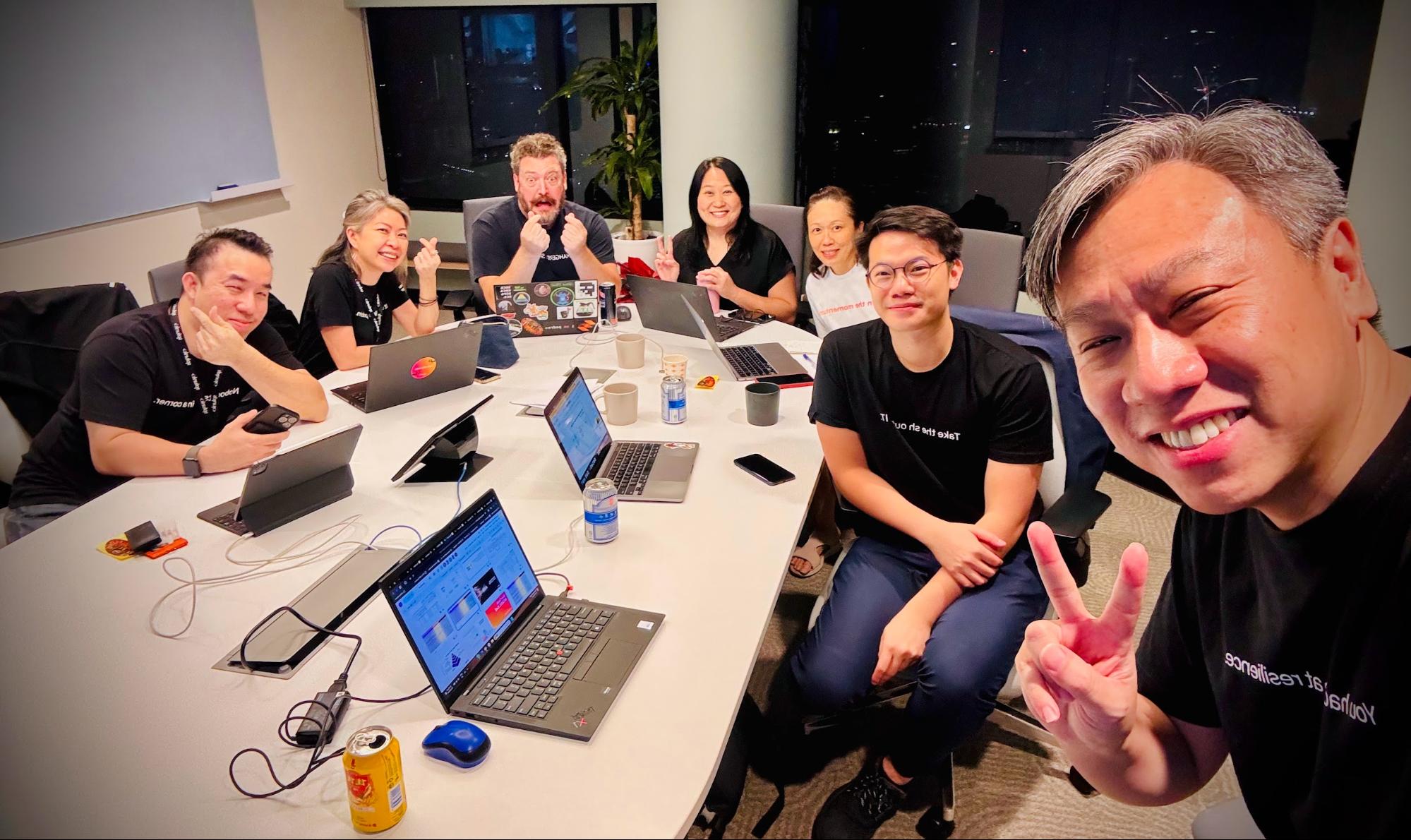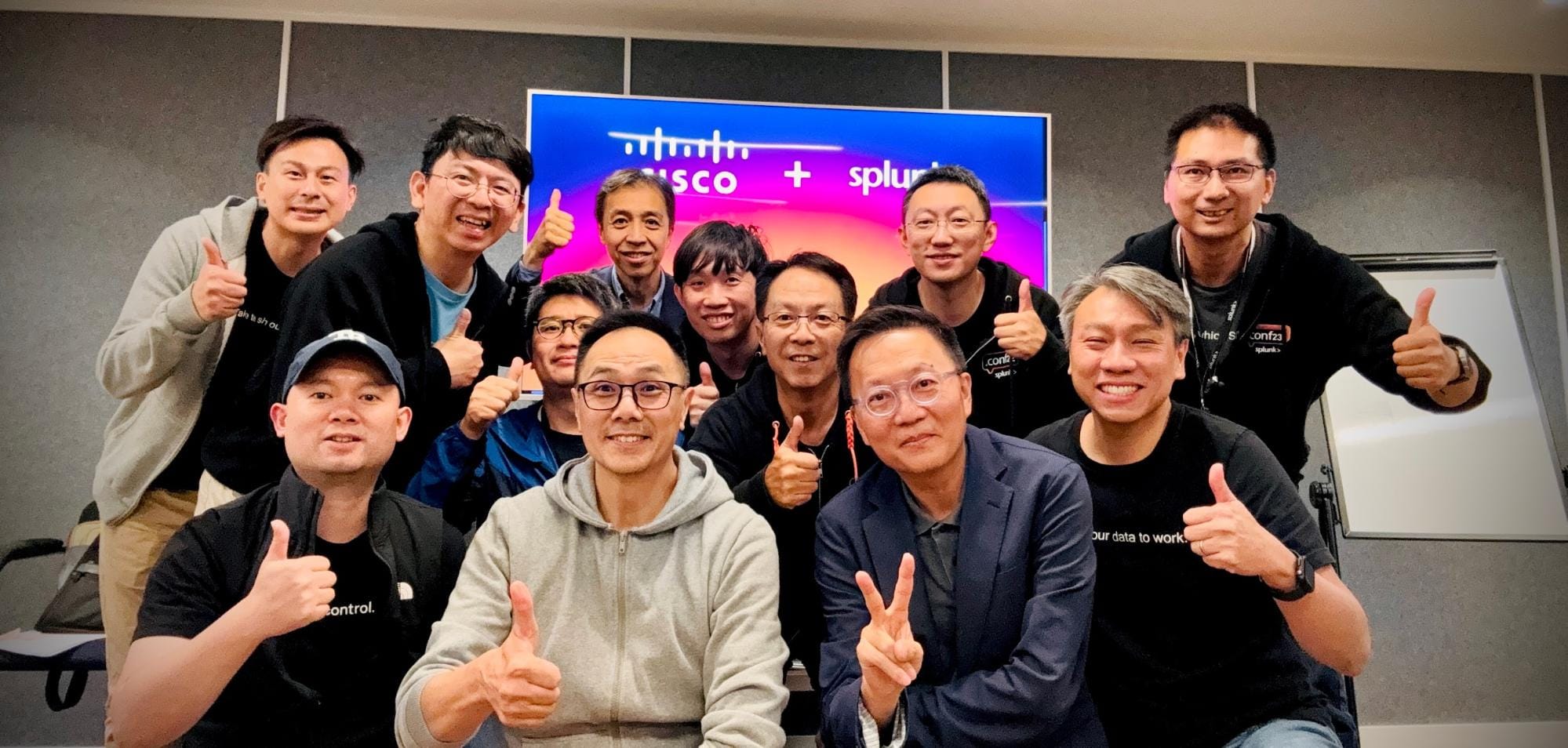Leading with Purpose: Navigating Challenges and Inspiring Leadership in Splunk

As the Asia Solutions Engineer Leader at Splunk for nearly three years, Edwin Seo has expertly navigated the company's transition following the Cisco acquisition. Edwin recognizes the uncertainties that often accompany such transitions, so he prioritized transparent communication to keep his team informed and engaged. Through clear communication and strategic guidance, he has helped his team embrace the changes, fostering a culture of adaptability and motivation. His leadership has been instrumental in aligning the team with new goals and inspiring them to excel in the evolving landscape. Read on to hear Edwin share his perspectives on managing change.
Embracing Change: The First Step to Leadership
Change is often met with resistance, but as leaders, embracing it is crucial. The Kübler-Ross Change Curve teaches us that any kind of change, whether personal or professional, is inevitable. We can either choose to adapt and handle it as professionally as we can, or seek opportunities elsewhere. The decision is ours to make, and there is no right or wrong path.
Opportunities arise from uncertainties, but only if we keep an open mind and an open eye. This begins with the 'Experiment' stage in the Change Curve, where we test new waters and learn to navigate the unknown. Embracing change is not just about survival; it's about thriving in new environments.
 Communication: The Backbone of Team Unity
Communication: The Backbone of Team Unity
Effective communication is the glue that holds a team together, especially during uncertain times. Keeping the team informed and engaged helps mitigate the fear of the unknown. Regular check-ins, transparent updates, and open forums for discussion enable team members to voice their concerns and stay aligned with the common goal.
During a late-night session in the Singapore office for an important customer engagement, it was the seamless communication between cross-functional teams—Sales, Solutions Engineer, Solutions Architects, Advisor, DSE, CS, and PS—that made the difference. Everyone knew their role and how it contributed to the larger picture, reinforcing the idea that you don’t walk alone.
Building Resilience: Strengthening Your Team's Core
Resilience is built through a series of small milestones. Celebrating these milestones, no matter how minor they seem, prepares the team for longer journeys ahead. Snacks and coffee may seem trivial, but they play a crucial role in keeping the team motivated and focused.
Resilience also comes from a culture that encourages innovation, creativity, and thinking outside the box. During a recent internal APAC Hackathon, a team comprising a senior SE, a fresh-out-of-school junior SE, an intern, and a junior channel SE exemplified these qualities and aced the Hackathon. Success in such endeavors builds the resilience needed to face larger challenges.
Fostering Innovation During Uncertain Times
Innovation doesn’t cease during uncertain times; if anything, it becomes more critical. Encouraging the team to ideate, discuss, and think differently can lead to groundbreaking solutions. The key is to create an environment where team members feel safe to experiment and fail.
At Splunk .conf Go Singapore and GovWare, we showcased a project borne from innovation and creativity during uncertain times. This project was a testament to what a motivated and imaginative team can achieve, even when the odds are stacked against them.
Leading with Empathy: The Human Side of Uncertainty
Uncertainty is a test of not just professional skills but also of our human values. As leaders, it’s our responsibility to become the 'Mother Hen,' providing warmth, comfort, and safety to our team. Keeping the team close and being human in our approach helps in fostering a sense of belonging and security.
The famous Chinese saying '授人以魚,不如授人以漁' translates to 'Give a man a fish, feed him for a day. Teach a man to fish, feed him for life.' These days, I ask more questions to stimulate thinking rather than providing solutions. This approach not only empowers the team but also prepares them to navigate through future uncertainties independently.
Related Articles
About Splunk
The world’s leading organizations rely on Splunk, a Cisco company, to continuously strengthen digital resilience with our unified security and observability platform, powered by industry-leading AI.
Our customers trust Splunk’s award-winning security and observability solutions to secure and improve the reliability of their complex digital environments, at any scale.




